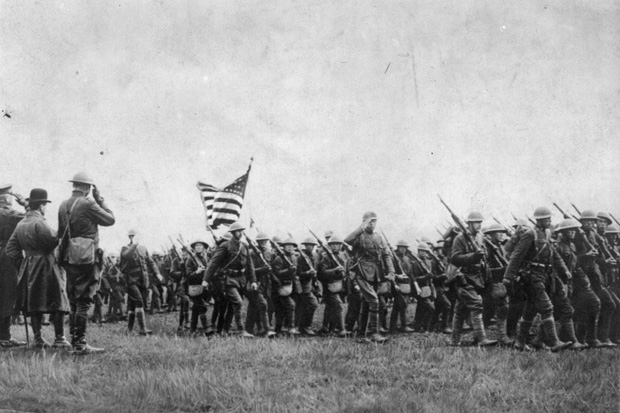There’s a part of me that thinks OK, we’ve heard enough now, one year on from the beginning of the centenary commemorations, about the first world war. Do we really need any more programmes (on radio or television) about Ypres, Gallipoli, Akaba, Versailles, and the Western Front? Or are we wallowing in history’s horror stories rather than trying to learn from them?
There’s a danger that anniversary fatigue will set in and stop us pausing to think, to really contemplate, the reality of that terrible, catastrophic war and whether there is any way it can be prevented from happening again. But then events, as ever, take over, such as the violence last week in Tunisia, a random, though by no means isolated attack on innocent civilians, provoking many hours of fruitless, reacting-to-the-moment comment. Unanswered questions scurry through the brain, demanding attention. Does the attack on western tourists have any connection with recent foreign policy in America and the West, or are the reasons more deep-seated? Where does such nihilistic hatred come from? Do we need to delve further back into the treaties that were made at the end of 1914–18 to understand the Arab Spring, or rather the region’s subsequent descent into nihilistic chaos?
At such times the World Service is the only resource worth listening to, because it gives us different voices, new experts, insider knowledge from reporters and commentators living inside the countries where these events are taking place, even if we need to bear in mind that what they say is filtered through the watchful eyes of the Corporation. As it happens, the network has been airing an 11-part series (made in association with the British Council) that has been looking at the first world war from this global perspective, travelling in the past year from Sarajevo to Delhi, St Petersburg to Dar es Salaam, and inviting a group of experts to debate the issues and answer questions from an invited audience. On paper it looked worthy but perhaps not the most exciting listen; yet another anniversary programme with very little topical relevance. But this week, the final programme in the series, The War that Changed the World (produced by Charlie Taylor), was recorded in the Library of Congress at Washington DC and focused on America’s involvement in that not-so-long-ago war. The panel of experts, historians Jennifer Keene and Ross Kennedy, together with David Frum, the neocon former speechwriter to George W. Bush who purportedly coined the phrase ‘the axis of evil’, looked at the ways in which the decision made by the US Congress in April 1917 to enter the war in Europe is still having an impact now.
The change of focus on events in the Arab world from 1991 and 2003 to 1917 was just so refreshing, with only a single mention of Bush in the hour-long programme. Instead we learnt something about President Woodrow Wilson, whose determination in bringing America into the war was to allow democracy to flourish — never mind that at the time the allies themselves were not democratic governments. In Britain, we were reminded, the extension of the vote to all adult men (except convicts and lords of the realm), as well as women, was not brought in until February 1918. Wilson himself believed that democracy was only possible in countries whose inhabitants were of European descent. More enlightened views might now prevail but still the audience were asked, ‘How do you think the USA should exercise its power?’ A question that seemed guaranteed to go down well with a Washington audience but be not so acceptable in Amman, where the previous programme in the series was recorded.
Thanks to iPlayer it’s possible still to listen in to that debate as Lyse Doucet’s chosen panellists from Jordan and Palestine, the historians, Khaled Fahmy, Mouin Rabbani and Ali Mahafza, gave us an alternative reading of what it meant to the Middle East to have its borders redrawn by foreign powers. Perhaps surprisingly it was concluded that in a way the artificial creation of Jordan by European diplomats anxious to secure their country’s own spheres of influence has enabled a kind of nationalism to develop, Arab-style, working across borders rather than within them. Lina Attel, a theatre director who grew up in the 1970s as rocket grenades landed on her home town and she and her brothers played with shrapnel, gave a passionate address. ‘A sense of fear, of anticipation, remains with me,’ she said, of never feeling safe. ‘How can humanity know so much and still fail so many people so badly?’ And yet Jordan has now become a safe haven for refugees from across the region.
More upbeat was Ali Mahafza, from the University of Jordan, who declared, ‘I am very optimistic. What’s happening now in the Arab world, in spite of the disasters which we see, in spite of the chaos around us, I believe, is similar to what happened to Europe in 1848. The Arabs are claiming now their liberty, their freedom and their human dignity, and I think they will get it as soon as possible.’






Comments